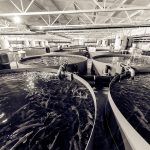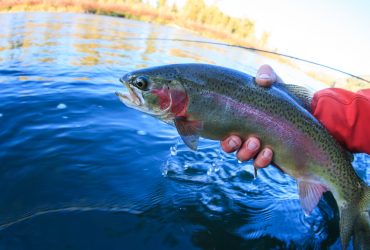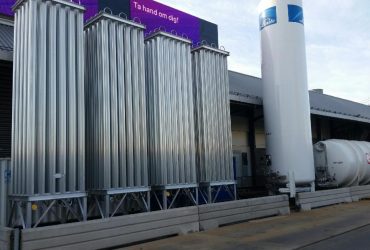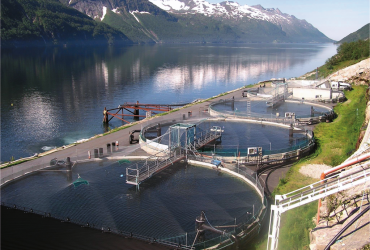
Black caviar
Black gold from Finland
As the hunger for caviar continues to grow among the world’s gourmands, fish farms are increasingly being used to produce this so-called black gold. One such example is Carelian Caviar, a Finnish producer of sturgeon caviar – one of the most expensive foods there is.
Carelian Caviar started operating in Varkaus, Finland, in 2006, as the only caviar producer in Scandinavia and the world’s most northerly producer of caviar. Growing sturgeon to produce caviar is a long, laborious process and it wasn’t until 2011 that the first batch could be harvested. Carelian Caviar manages the entire production cycle from hatching to end product. It collects eggs from broodstock, fertilizes the eggs, incubates and starts to feed the fry. Once the fish are grown from juvenile to sorting size, males and females are separated using an ultrasound device. The female fish start producing caviar when they reach full maturity, at age five to seven.
Each sturgeon produces around one to two kilograms of caviar. On the consumer market, this black gold is priced at between EUR 700 and EUR 2,000 per kilo, depending on the quality.
Oxygen is the lifeblood of the system
Carelian Caviar occupies an 8,000-square-metre aquaculture facility, consisting of around 50 large tanks. Conditions in the tanks are carefully controlled using a range of state-of-the-art tools. There are a total of 170 measuring points across all the basins that provide crucial information on the water conditions, including temperature, pH, nitrate, nitrite, and oxygen.
Raising healthy fish requires good-quality water, in which the oxygen and all the other key parameters are maintained at the right level. The survival and healthy development of the sturgeon requires the conditions to be just right at all times. Carelian Caviar also uses so called “clean swimming” tanks, filled with clean, crisp and cold water.
“Our fish farm is situated in the middle of the Finnish Lake District and, during the last stage of growing the fish prior to production, they are placed in flow-thru tanks with no feed, filled with clean water from Lake Saimaa. It is this water that gives our caviar its unique, excellent flavour,” explains Carelian Caviar’s Production Manager, Jani Rantula.
While all the parameters are crucial in their own way, the most essential factor for keeping the fish alive is the liquid oxygen.
“Oxygen is the lifeblood of our system, without it our production is impossible,” says Rantula, who explains that, as the water is being re-circulated throug the 50 different tanks, oxygen needs to be added constantly.
“The oxygen level is crucial because, if it becomes to low or, indeed, too high, it could have a harmful impact on the growth of the fish,” he adds.
Recirculation system for sustainable production
Carelian Caviar produces caviar without using any antibiotics or hormones. The fish are given GMO-free fish feed and the end product is made without the use of preservatives.
Whereas some fish farms release emissions of nutrients, which may negatively impact the surrounding environment, responsibly managed fish farms can produce large quantities of fish without burdening the environment. Furthermore, the sustainable production of farmed fish counteracts the overfishing of natural waterways, thereby protecting marine life and habitat.
Jani Rantula explains that Carelian Caviar is a proud example of an environmentally sound fish farm.“Our farm is based on a so-called Recirculation Aquaculture System (RAS), which means we recirculate the same water and clean it with filters. We replace at most one to two per cent of the re-circulated water, so our overall water usage is comparatively low,” says Rantula.
Meanwhile, sludge and wastewater from the fish farm goes to Stora Enso’s wastewater treatment plant where it is dried and used as fuel for energy production. Stora Enso’s paper mill also supplies heat to the fish farm. With the help of waste heat from the mill, the temperature in basins is maintained at +18° Celsius all year round.
Text: Isabelle Kliger
Photo: Shutterstock and Carelian Caviar

Carelian Caviar is a Partner of sustainable seafood advisory list Seafood Watch, and a member of environmental non-profit FishChoice. Carelian Caviar was also the first caviar company to become an approved member of the Sustainable Restaurant Association (SRA).



